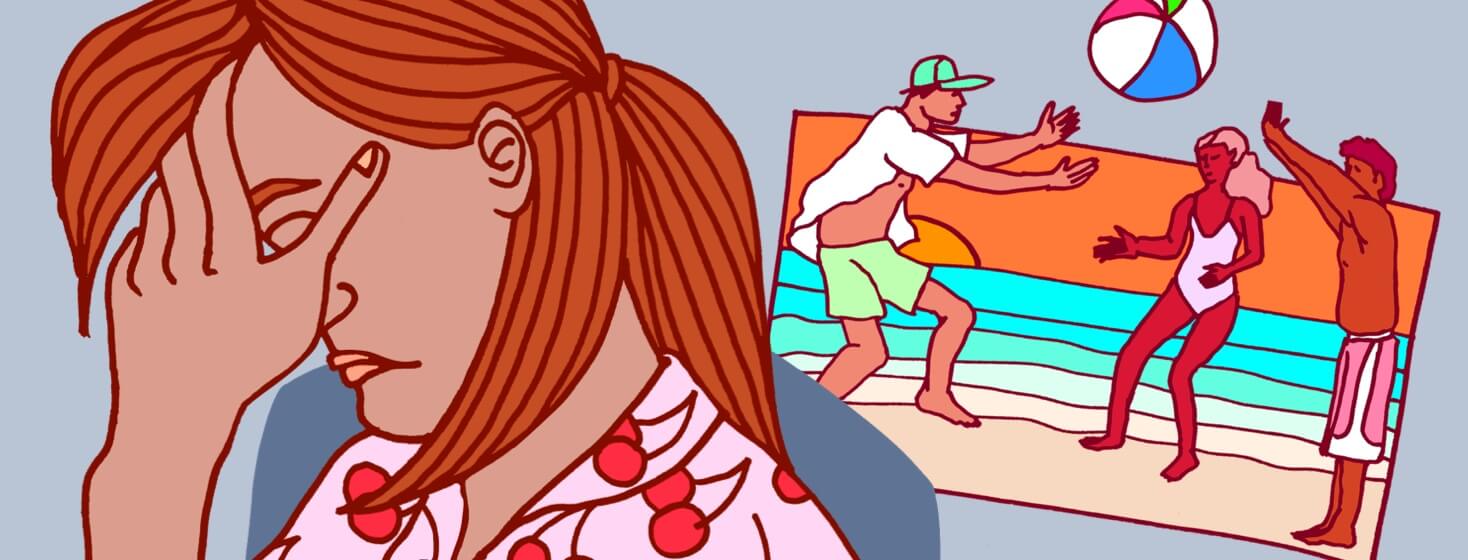Sure, I Have MS. But What About Me?
Exclusion and MS, or is it exclusion because of MS? That is a question I’ve struggled with for more than two decades.
No one likes to be excluded, but it happens. Whether being left out is by accident or done purposefully, experiencing exclusion is something that challenges even the strongest among us. But for me – a wheelchair user living with MS – exclusion is part of my everyday life.
Optimism and let down
I became fully dependent on my power wheelchair in 2002, just five years after my MS diagnosis. Back then, there were only three medications to treat the disease’s severity and progression, but I tried to stay hopeful and optimistic.
I remember thinking that my wheelchair would be only temporary. “Don’t get discouraged, Jen!” I told myself. “Focus on what your neurologist told you: ‘A cure for this disease is right around the corner.’”
That was more than 20 years ago. They still haven’t found a cure for the disease, and I’m tired of it. Actually, I’m tired of it all. The disease. The doctors. The medicine. The uncertainties.
But most of all, I’m tired of being excluded.
The physical barriers of a wheelchair
In reality, my wheelchair and I don’t always fit in. Literally. Many of us who use power wheelchairs constantly face a world full of barriers. Physical barriers are evident in the lack of accessibility in many public places and types of transportation.
I always need to ask questions like, “Does the restaurant have steps to get inside? And if so, is there an elevator I can use?” Or, “Is there an accessible bathroom?”
Those physical barriers are frustrating, especially when you consider the Americans with Disabilities Act (ADA) went into law more than 30 years ago. But the exclusion that is most frustrating and saddening to me is the social isolation I deal with because I rely on a wheelchair.
Social barriers and feeling left out
Plus, I’m always reliant on my husband, Dan (who also has MS), and my accessible van to get me where I’m going. This is because I no longer can drive, and most people do not have an accessible vehicle for me and my wheelchair.
And I get it. I don’t have to be included in everything with my friends, but it really stings when I am left out.
Worse yet, it is not uncommon for friends to discuss their upcoming plans – scenic boat rides on the lake, weekends at the cabin, or something else like that – right in front of me. I realize that logistically my power chair and I may not be able to attend, but please don’t ignore me.
My wheelchair is my independence, but in those moments, it is a constant reminder of the things my body is no longer able to do and of the way it leads my friends to accidentally or purposefully exclude me. Ugh!
My constant support
When I’m sad and struggling with being excluded, Dan totally understands. He also reminds me and takes inspiration from the 1993 movie Tombstone. You may remember one particular scene where Wyatt Earp (Kurt Russell) smacks Johnny Tyler (Billy Bob Thornton) and says, "You gonna do something, or are you just gonna stand there and bleed?"
Dan essentially is empowering and encouraging me to be honest with my friends and suggest ways to stay included in spite of my MS.
What can I do about feeling isolated?
Rather than passively sit back and worry about not joining others, I need to present ways that I can be included. This isn’t to say they need to completely alter their overall plans; maybe just adjust them a little bit to become accessible for me.
For example, when my friends take a boat trip, how fun would it be to make plans for us all to have a land-based picnic after the ride? If the weekend trip is at a location that is not accessible, how about one evening getting together for dinner or drinks at a restaurant near the cabin? Or better yet, let’s find an accessible Airbnb or other vacation rental that we can all enjoy.
Will I always be included? Not necessarily. But how can I encourage inclusion if I am content with sitting silently on the sidelines. Ending exclusion starts with asking a simple question: “What about me?”

Join the conversation